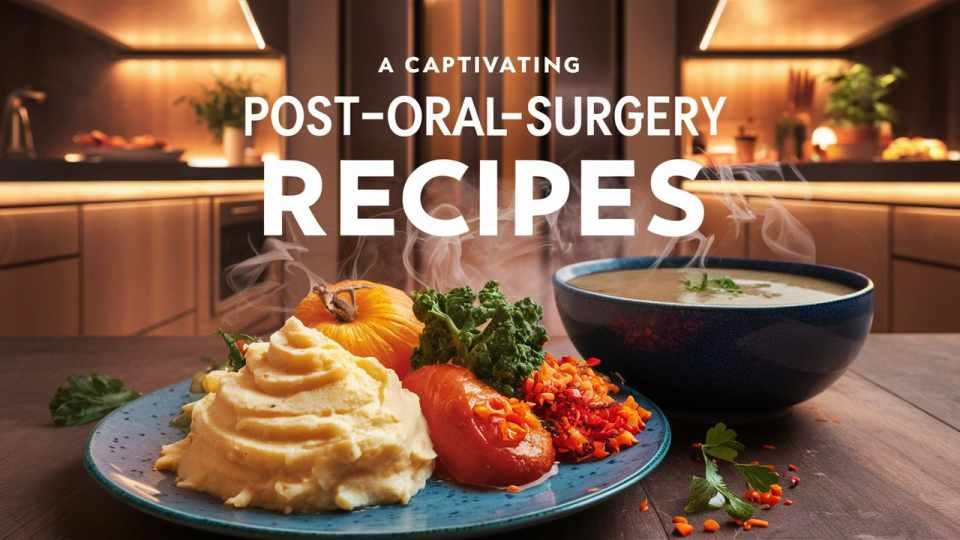Hey there! 😊 If you’re reading this, chances are you’ve recently had oral surgery and are on the hunt for some delicious and easy-to-eat soft foods. Don’t worry, I’ve got you covered! As a doctor, I know how important it is to follow a soft food diet during recovery. But who says soft foods have to be boring? Let’s explore some tasty options that will not only help you heal but also make your taste buds happy. Ready to dig in? Let’s go!
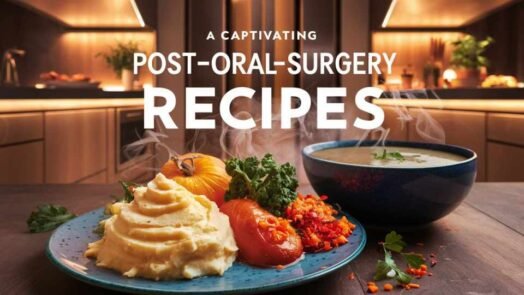
Recovering from oral surgery can be challenging, especially when it comes to finding the right foods to eat. As a doctor, I understand the importance of a proper diet in the healing process. This guide will help you navigate through the best soft foods after oral surgery, ensuring a smooth and comfortable recovery.
Introduction to Soft Food Diets
After oral surgery, it’s crucial to follow a soft food diet to avoid irritating the surgical site. Soft foods are easy to chew and swallow, reducing the risk of complications. Let’s explore some nutritious and delicious options.
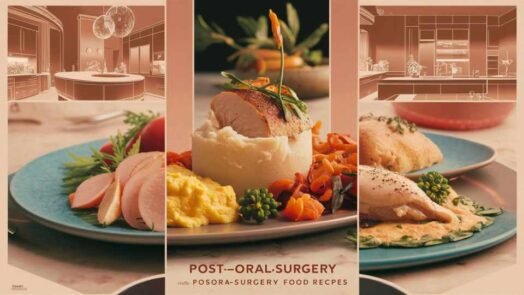
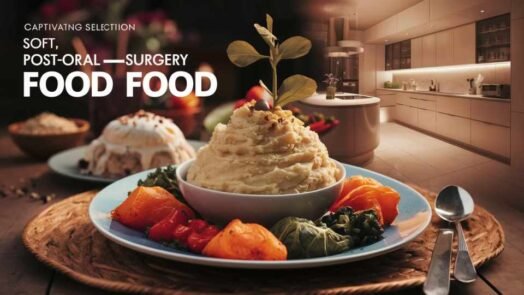
Benefits of Soft Foods After Oral Surgery
Soft foods not only ease the discomfort but also provide essential nutrients needed for healing. They are gentle on the gums and teeth, making them ideal for post-surgery recovery.
Breakfast Recipes
Smoothies and Shakes : Your New Best Friends 🥤
Smoothies are a fantastic option for breakfast. They are easy to prepare and can be packed with nutrients. Try blending fruits, yogurt, and a bit of honey for a delicious start to your day.
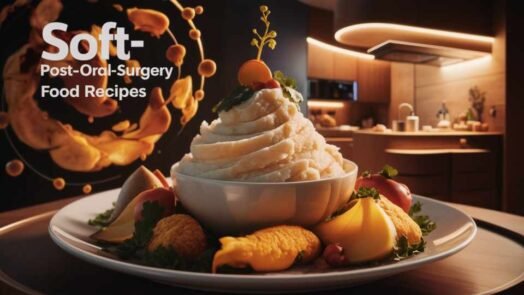
Soft Cereals and Oatmeal
Soft cereals and oatmeal are also great choices. They are easy to eat and can be flavored with fruits or a touch of cinnamon.
Lunch Recipes
Soups and Broths : Comfort in a Bowl 🍜
Soups and broths are perfect for lunch. They are soothing and can be made with a variety of vegetables and proteins. Chicken broth, for example, is both nutritious and comforting.


Mashed Vegetables and Potatoes : Soft and Satisfying 🥔
Mashed vegetables and potatoes are another excellent option. They are soft, easy to digest, and can be seasoned to taste.
Some of the best and most popular vegetarian recipes, such as Extra Vegetable Fried Rice, Creamy Goat Cheese Polenta with Ratatouille, and Vegetarian Burrito Bowl with Avocado Crema.
Dinner Recipes
When it comes to dinner, consider tender meats and fish. They can be cooked until soft and are rich in protein, which is essential for healing. Soft rice and quinoa are also suitable for dinner. They are gentle on the stomach and can be paired with various soft vegetables. High-protein soft foods are vital for recovery. They help in tissue repair and provide the energy needed for healing. Consider incorporating eggs, soft cheeses, and protein shakes into your diet. While many soft foods are beneficial, some should be avoided. Hard, crunchy, or spicy foods can irritate the surgical site and should be excluded from your diet. Preparing soft foods doesn’t have to be complicated. Use a blender or food processor to achieve the desired consistency. Season lightly to avoid irritation.
Tender Meats and Fish : Protein-Packed Goodness 🐟
For dinner, consider tender meats and fish. They can be cooked until soft and are rich in protein, which is essential for healing.
Soft Rice and Quinoa
Soft rice and quinoa are also suitable for dinner. They are gentle on the stomach and can be paired with various soft vegetables.
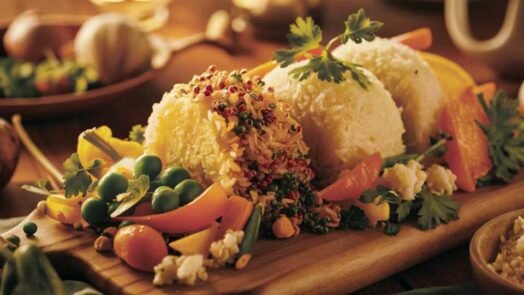
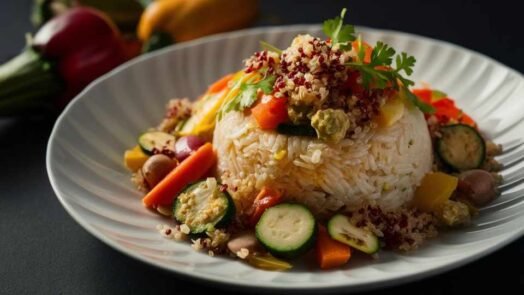
Snacks and Desserts
Yogurt and Pudding : Sweet and Creamy Treats 🍮
Yogurt and pudding make for great snacks and desserts. They are smooth, creamy, and can be flavored with fruits or vanilla.
Soft Fruits and Purees
Soft fruits and purees are also excellent choices. Applesauce, for example, is both tasty and easy to eat.
High-Protein Soft Foods for Recovery : Fuel for Recovery 💪
High-protein soft foods are vital for recovery. They help in tissue repair and provide the energy needed for healing. Consider incorporating eggs, soft cheeses, and protein shakes into your diet.
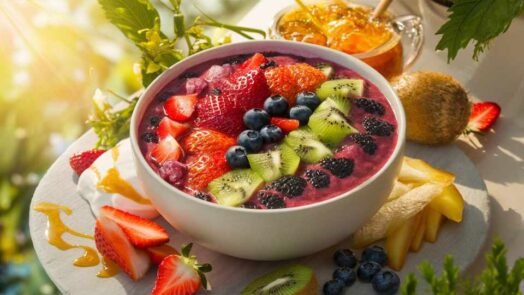

Soft Foods to Avoid After Surgery : Keep Your Healing on Track 🚫
While many soft foods are beneficial, some should be avoided. Hard, crunchy, or spicy foods can irritate the surgical site and should be excluded from your diet.
Tips for Preparing Soft Foods Post-Surgery – Easy and Delicious 🍽️
Preparing soft foods doesn’t have to be complicated. Use a blender or food processor to achieve the desired consistency. Season lightly to avoid irritation.

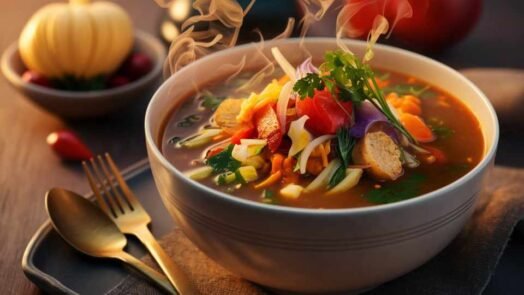
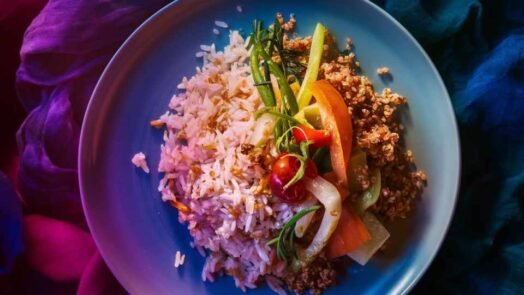
Recovering from oral surgery can be a daunting experience, but with the right diet, you can make the process much smoother. As a doctor, I often recommend a variety of soft foods that are not only easy to consume but also packed with essential nutrients. Best soft foods after oral surgery include smoothies, soups, mashed potatoes, and yogurt. These foods are gentle on the surgical site and help in providing the necessary nutrition for healing. For instance, smoothies are a fantastic option for breakfast. They are easy to prepare and can be packed with nutrients. Try blending fruits, yogurt, and a bit of honey for a delicious start to your day. Similarly, soups and broths are perfect for lunch. They are soothing and can be made with a variety of vegetables and proteins. Chicken broth, for example, is both nutritious and comforting.
Nutritious smoothies for post-surgery healing are a great way to start your day. They are easy to consume and can be packed with essential nutrients. For example, blending fruits, yogurt, and a bit of honey can create a delicious and nutritious smoothie. Similarly, soft cereals and oatmeal are also great choices for breakfast. They are easy to eat and can be flavored with fruits or a touch of cinnamon. For lunch, soups and broths are perfect. They are soothing and can be made with a variety of vegetables and proteins. Chicken broth, for example, is both nutritious and comforting. Mashed vegetables and potatoes are another excellent option for lunch. They are soft, easy to digest, and can be seasoned to taste.
For dinner, consider tender meats and fish. They can be cooked until soft and are rich in protein, which is essential for healing. Soft rice and quinoa are also suitable for dinner. They are gentle on the stomach and can be paired with various soft vegetables. High-protein soft foods are vital for recovery. They help in tissue repair and provide the energy needed for healing. Consider incorporating eggs, soft cheeses, and protein shakes into your diet. While many soft foods are beneficial, some should be avoided. Hard, crunchy, or spicy foods can irritate the surgical site and should be excluded from your diet. Preparing soft foods doesn’t have to be complicated. Use a blender or food processor to achieve the desired consistency. Season lightly to avoid irritation.
Soft breakfast ideas for dental patients include smoothies, soft cereals, and scrambled eggs. These foods are easy to consume and provide essential nutrients for healing. For example, blending fruits, yogurt, and a bit of honey can create a delicious and nutritious smoothie. Similarly, soft cereals and oatmeal are also great choices for breakfast. They are easy to eat and can be flavored with fruits or a touch of cinnamon. For lunch, soups and broths are perfect. They are soothing and can be made with a variety of vegetables and proteins. Chicken broth, for example, is both nutritious and comforting. Mashed vegetables and potatoes are another excellent option for lunch. They are soft, easy to digest, and can be seasoned to taste.

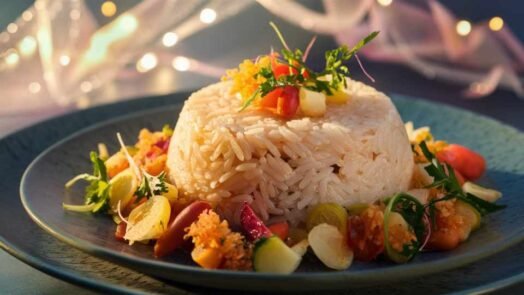
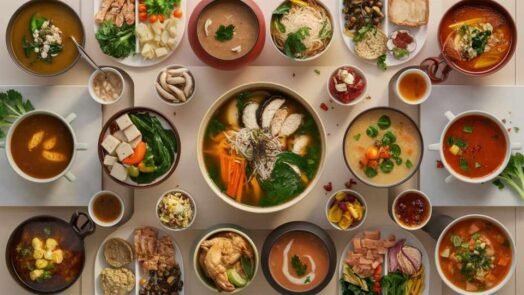
For dinner, consider tender meats and fish. They can be cooked until soft and are rich in protein, which is essential for healing. Soft rice and quinoa are also suitable for dinner. They are gentle on the stomach and can be paired with various soft vegetables. High-protein soft foods are vital for recovery. They help in tissue repair and provide the energy needed for healing. Consider incorporating eggs, soft cheeses, and protein shakes into your diet. While many soft foods are beneficial, some should be avoided. Hard, crunchy, or spicy foods can irritate the surgical site and should be excluded from your diet. Preparing soft foods doesn’t have to be complicated. Use a blender or food processor to achieve the desired consistency. Season lightly to avoid irritation.
FAQs
What are the best soft foods after oral surgery?
The best soft foods include smoothies, soups, mashed potatoes, and yogurt. These foods are easy to eat and gentle on the surgical site.
How long should I eat soft foods after dental surgery?
Typically, you should follow a soft food diet for about a week or until your dentist advises otherwise.
Can I eat ice cream after oral surgery?
Yes, ice cream can be soothing and is generally safe to eat after oral surgery.
Are smoothies a good option after dental surgery?
Absolutely, smoothies are nutritious and easy to consume, making them an excellent choice.
What soft foods are high in protein?
Soft foods high in protein include eggs, soft cheeses, and protein shakes.
Can I eat bread after oral surgery?
Soft bread may be okay, but avoid crusty or hard bread that can irritate the surgical site.
How do I prepare soft foods for recovery?
Use a blender or food processor to achieve a smooth consistency. Season lightly to avoid irritation.
What foods should I avoid after oral surgery?
Avoid hard, crunchy, or spicy foods that can irritate the surgical site.
Can I eat pasta after dental surgery?
Yes, soft pasta is generally safe to eat after dental surgery.
Are there any soft food recipes for breakfast?
Yes, smoothies, soft cereals, and scrambled eggs are great breakfast options.
Enjoying Reading this?
For more detailed recipes, check out our Smoothies and Shakes Breakfast Recipes and Soups and Broths Lunch Recipes pages. For tips on preparing soft foods, visit our Tips for Preparing Soft Foods Post-Surgery Tips Page.
By following this guide, you’ll ensure a smooth and comfortable recovery after oral surgery. Remember, the right diet plays a crucial role in healing, so choose your foods wisely and enjoy the journey to better health.

